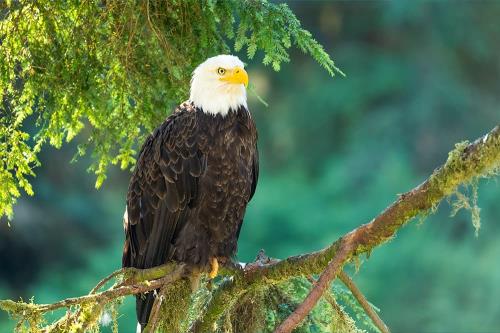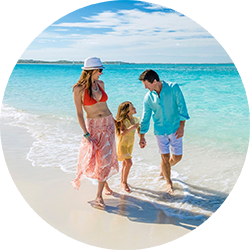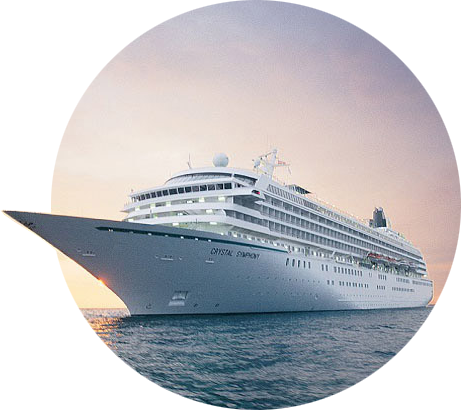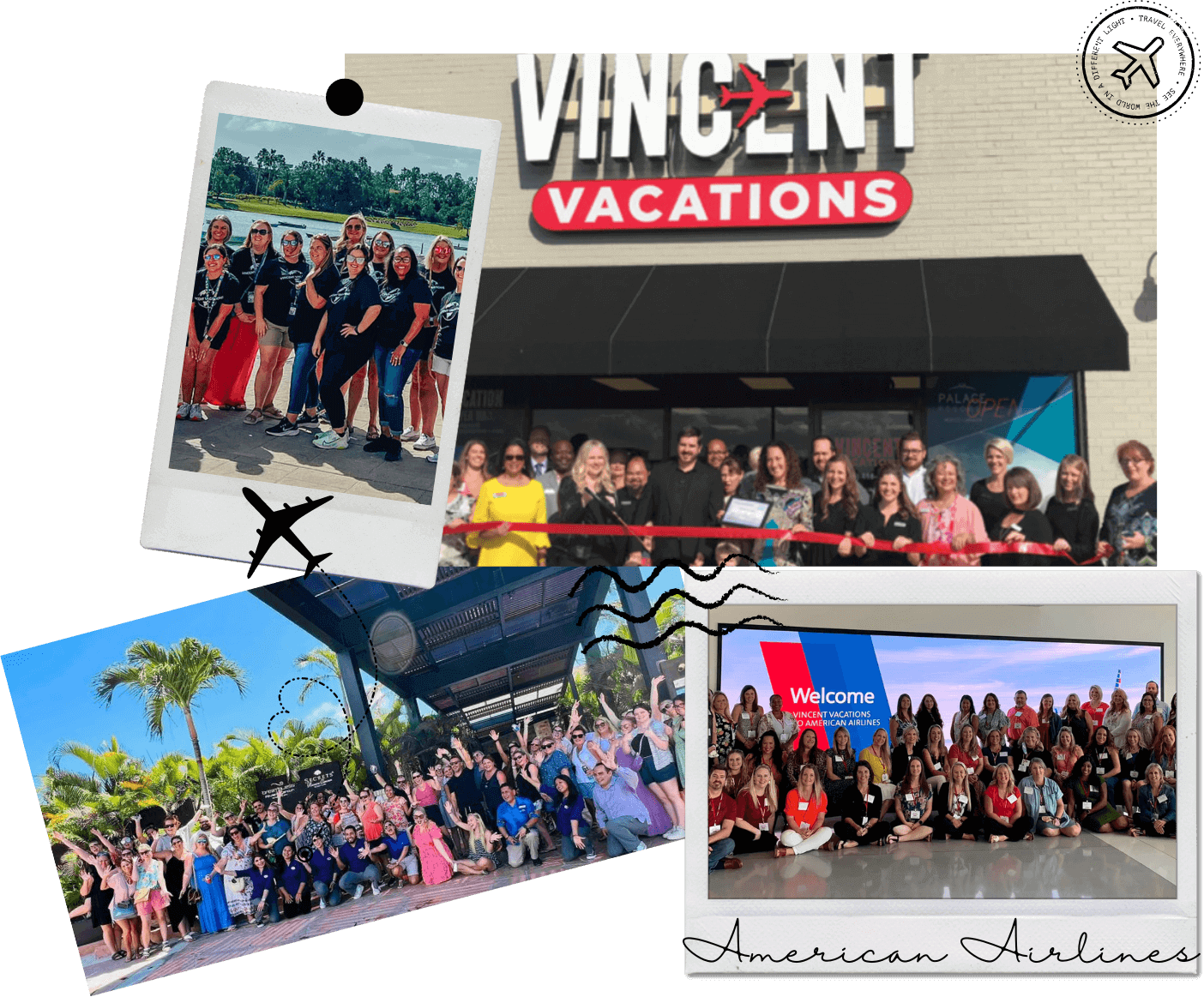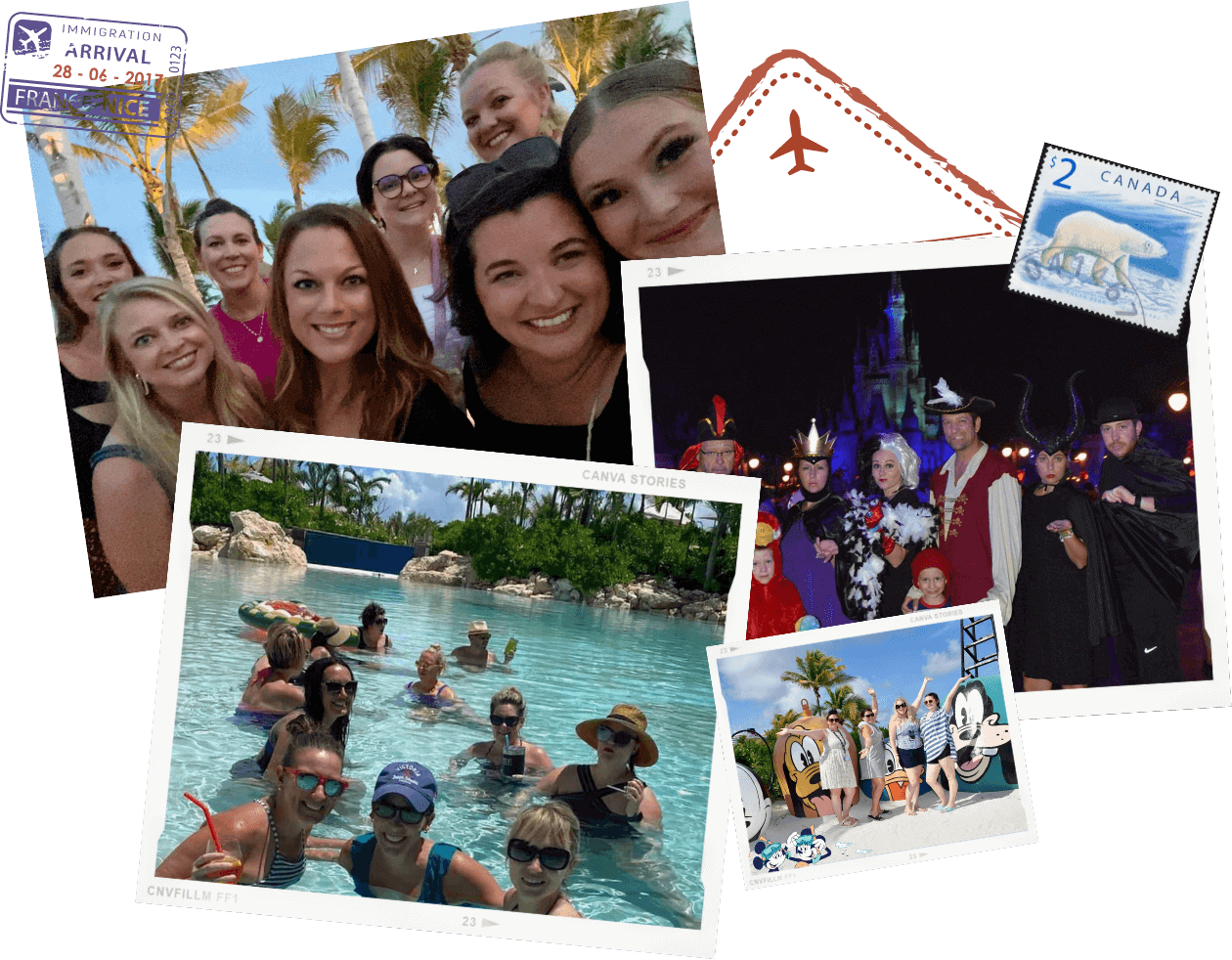
Top Wildlife to Spot on a Cruise to Alaska
December 8, 2023
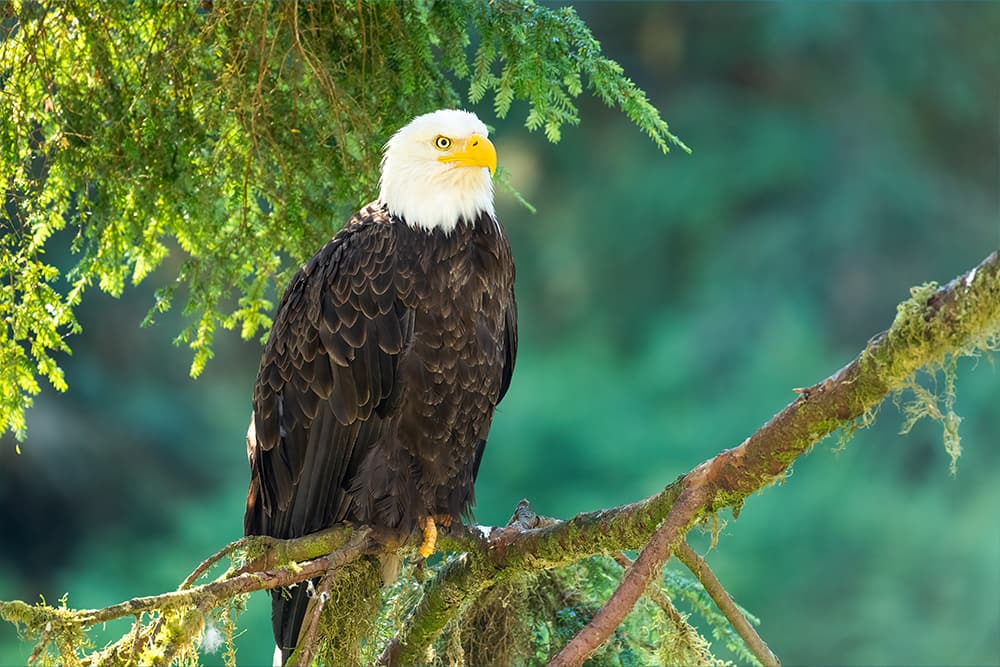
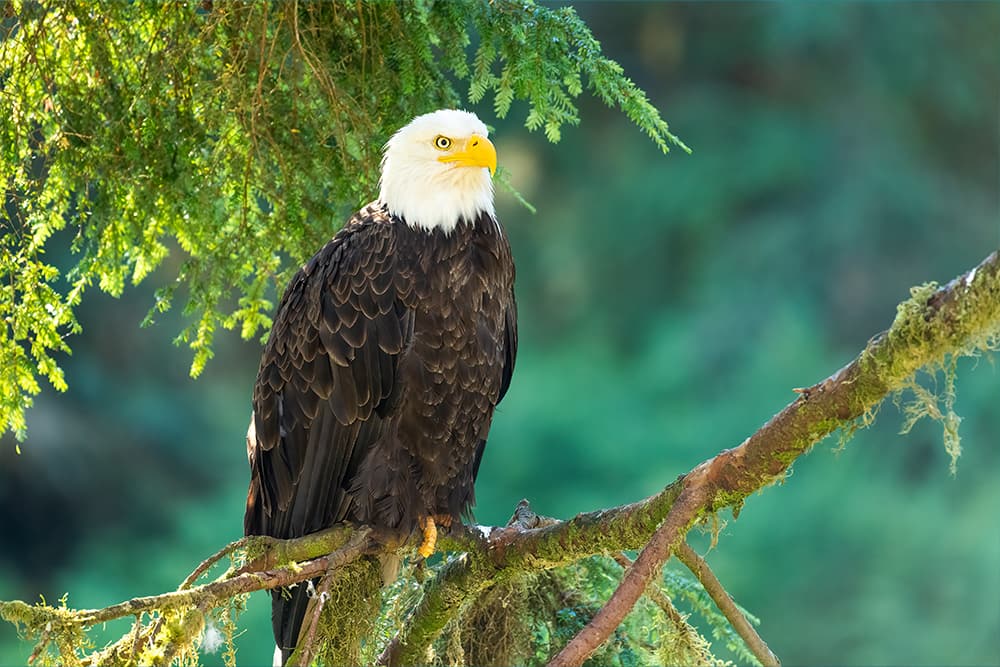
Photo Credit: Barrett Hedges, National Geographic Photographer
Brought to life in partnership with Voyij.com

From bald eagles and falcons soaring overhead to humpback whales, seals, and puffins, a cruise to Alaska is the best option if you want to see majestic wildlife without losing out on luxury and delicious food.
Before going on your trip, we recommend you buy a good pair of binoculars to carry onboard the ship and take with you during shore excursions. You never know when that impressive eagle will fly overhead or when a humpback whale will breach out of the blue and put on a show for all the passengers.
Here are some animals you will most likely spot on a cruise to the 49th state. Let's start with what you might see flying overhead or along the coast.
Ready to start planning? Explore all Alaska cruises.
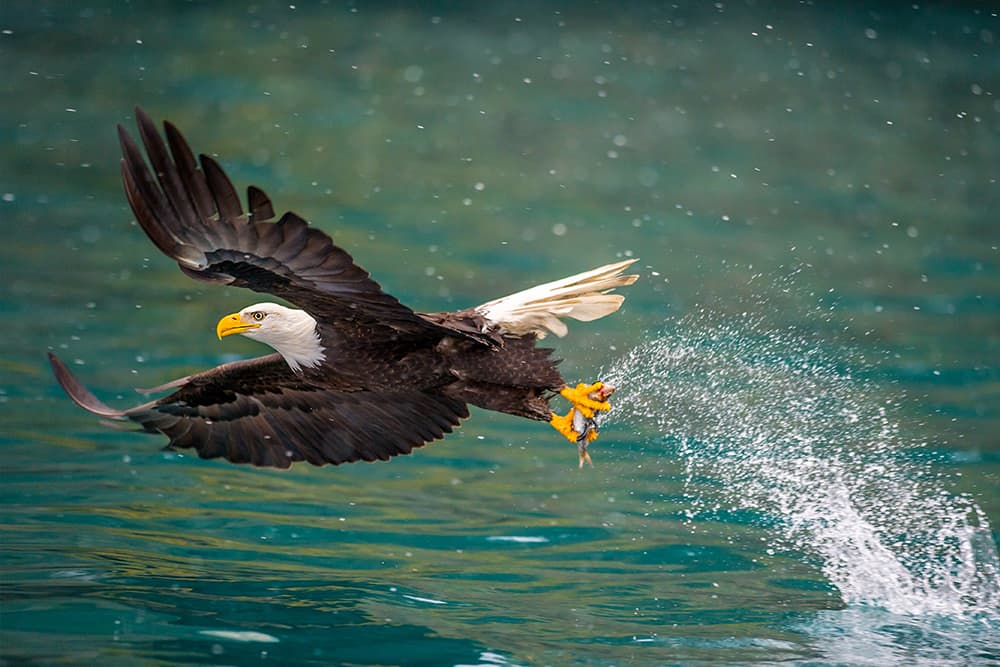
Eagle in Alaska
Alaska Birds
Alaska is a birdwatcher's paradise, and these are a few types of birds you might encounter during your Alaska cruise.
Bald Eagles
These remarkable birds are native to Alaska, with over 30,000 calling the state home. They are usually found along the coast and offshore islands in Southeast Alaska, as their diet consists primarily of fish, clams, and crabs. Keep your eyes open since you might spot a bald eagle soaring high over your ship while sailing or hanging out on trees or tall posts at the port.
Willow Ptarmigan
This cute bird is Alaska's state bird, and you will most likely spot them at Denali National Park, Kenai Fjords, Haines, or Juneau. If you visit Alaska in the summer, they are brown, and if you go in August or September, their chestnut feathers start to turn white to be ready for the winter. To protect themselves against predators, they change the color of their plumage with the seasons.
RELATED CRUISES:
7-Day Alaska Cruise: Glacier Bay, Skagway & Juneau
7-Day Alaska Cruise: Glacier Bay, Skagway & Juneau
7-Day Alaska Cruise: Hubbard Glacier & Skagway
Puffins
With their colorful beaks, puffins are one of the most easily recognizable sea birds in Southeast Alaska. Puffins are excellent swimmers and are more comfortable in the water than in the air.
Alaska is home to both the horned and tufted puffins. Tufted puffins are those with yellow feathers just above their eyes, while horned puffins have black horns underneath their eyes. Puffins can be seen all over Southeast Alaska. Still, if you want to see them up close, we recommend taking a boat trip in the Kenai Fjords National Park or visiting the protected islands of Glacier Bay National Park.
Peregrine Falcons
These graceful birds are also the world's fastest and can fly over 200 miles per hour, making them very efficient hunters. Not only are they fast, but peregrine falcons can fly very long distances, from Northern Alaska to Chile and Argentina during the winter and back to Alaska in the spring.
If you are lucky, you might spot some Peale peregrine falcons when your ship is sailing near the coastline.
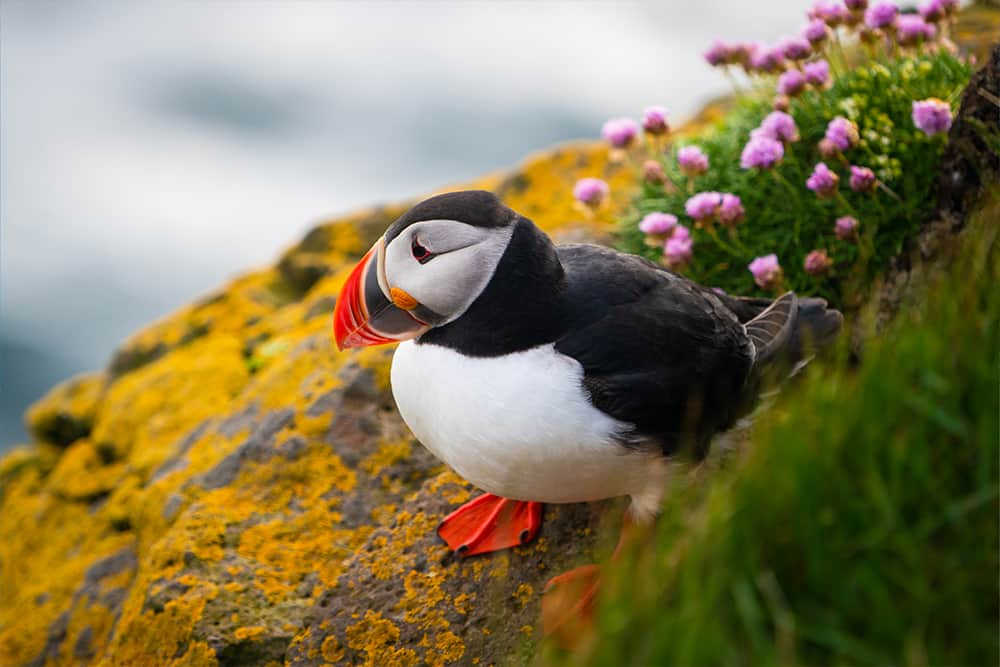
Puffins are known for colorful beaks
Land Mammals in Alaska
While on shore excursions in ports like Skagway, Ketchikan, and Juneau, you might spot amazing Alaskan land animals. If you are paying attention and looking through your binoculars, you will probably see:
Brown and Black Bears
Alaska is one of the best places to spot Brown (Grizzly) and Black bears; since there are over 85,000 bears that call Alaska home. However, seeing bears in the wild is no easy feat since bears are elusive creatures that eschew humans. If you are lucky, you can spot bears near the waterways early in the morning when it's cool outside.
Some cruise travelers have reported seeing bears through their binoculars while onboard their ship when sailing near the coastline in the early morning. If you want to see the iconic image of a bear fishing for a salmon stream, we recommend you book a cruise later in the season (late July through September).
Moose
These members of the deer family are the heaviest land mammals in Alaska- weighing up to 1,600 lbs. Their coat ranges from golden brown to almost black, depending on the season and age. Male moose are easily recognizable by their antlers and can be found wandering around forests and even in populated areas looking for food.
If you want to spot moose during your trip to Alaska, we recommend visiting the vast forests around Anchorage, Fairbanks, or Denali National Park, where you will find these solitary giants in their natural habitat.
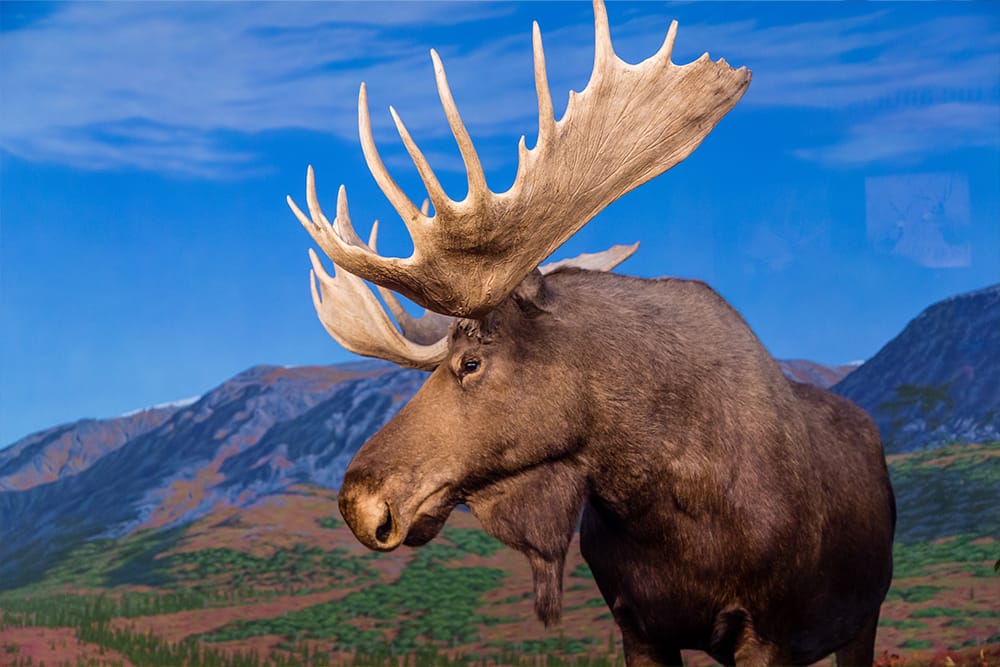
Moose in Alaska
Marine Mammals of Alaska
Alaska is home to marine mammals of all shapes and sizes. From small otters to harbor seals and magnificent humpback whales, grab your binoculars and zoom lenses because you never know when a whale will breach next to your ship!
Humpback Whales
If sailing to Alaska during June and July, you will most likely spot humpback whales, especially if you go on a whale-watching tour. These gigantic mammals are around 50 ft long and weigh approximately 35 tons. During the summer, they migrate from their breeding grounds in Hawaii or Mexico to their feeding grounds that extend from Washington State to the Alaskan coast. According to experts, Alaska's Inside Passage is the best place to watch these marine mammals.
Orcas
Killer whales or orcas are not whales; they are highly intelligent members of the dolphin family and live in small family groups called pods. Known for their ability to hunt underwater in the darkness, orcas emit sounds and echolocation to navigate and find their prey. Resident killer whales spend most of their lives in the Pacific Northwest and Alaska, feeding on over 200lbs a day of fish and the occasional seal and seabird.
Lucky for you, killer whales are easy to spot since they swim close to the surface and sprout every few seconds as they swim. Their dorsal fins are up to six feet tall, so if you are lucky, you can spot them from a ship's deck with your binoculars. If you want to encounter them close and personal, we recommend booking a whale-watching tour.
Harbor Seals
These cute animals are often seen resting on rocks or ice floes, but don't be mistaken; they are agile swimmers that can dive underwater up to 1,500 ft and stay submerged for over 20 minutes. Harbor seals feed on fish, clams, and crustaceans like shrimps while being hunted by killer whales, sharks, and humans. The best place to see them is near the shore, where they gather to regulate their body heat.
When hoping to view the animals mentioned above while on a cruise to Alaska, remember that wildlife can be unpredictable; that is why it is essential to remain flexible. Tour operators can never guarantee you will see whales, moose, or bears hunting for salmon up close.
The best tip we can give you is always to have your binoculars with you, whether you enjoy the ship's amenities or during a shore excursion. You will never know when the crew will announce over the loudspeaker that a pod of orcas is breaching near the ship!
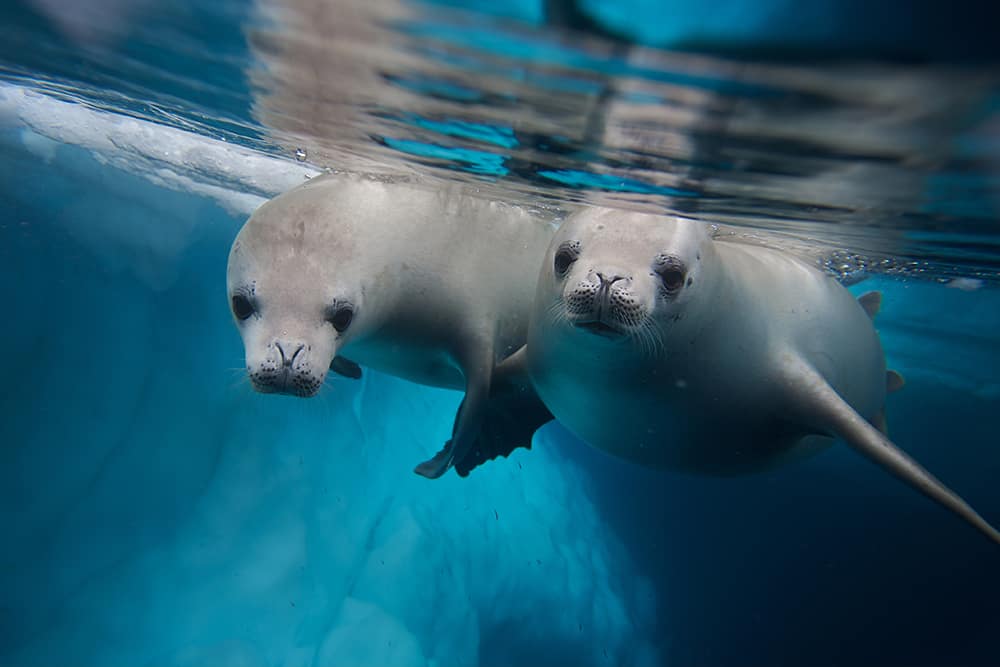
Seals in Alaska
Browse Alaska cruises to book this once-in-a-lifetime experience and don't forget to sign up for Norwegian's cruise deals to get the latest specials and discounts delivered to your inbox.
EDITOR'S NOTE: This article was originally published on January 4, 2023. It has been updated to show related content and itineraries.














